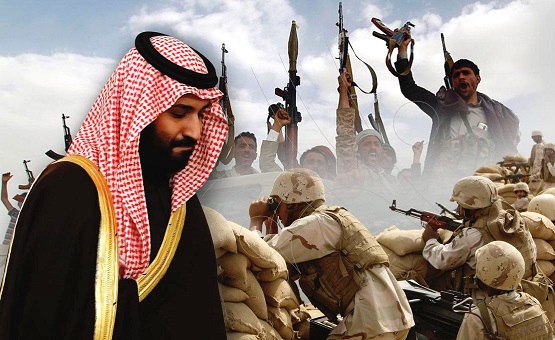The Saudi economy is facing a bleak and uncertain future with a projected growth of a mere 0.1 percent in real.
According to a recent report by the International Monetary Fund the Saudi economy is projected to pick up to 1.7 percent in 2017, but overall real GDP growth is expected to be close to zero as oil GDP declines.
A report by the Middle East Eye notes that the Saudi economy is barely growing. Its government is spending way more than it receives. And its economic reforms, which would move the country away from reliance on oil, are operating at a snailís pace.
If something doesnít give, then the government may need to hold "a fire sale". At least, thatís what one financial firm warns.
Even though the kingdomís plan of action is to steadily ditch its dependence on oil, the primary problem now is the weak oil market.
Saudi Arabia is the second largest producer in the world, pumping just over 10m barrels a day, but any significant upward move in production could send prices below $40.
Oil market woes depleting kingdomís reserves
"The government still has a large deficit of around 10 percent of GDP," said Garbis Iradian, chief economist for MENA at the Washington DC-based Institute of International Finance. "Last year it was between 16-17 percent."
The Saudi-led-and US-backed-war in Yemen which started on March 2015 has had a negative impact on the Saudi economy and the war has also failed to achieve any of the aims set by Riyadh.
According to estimates Saudi aggression in Yemen cost $5.3 billion alone in defense budget during the year of 2015. In addition, Saudi Arabia surpassed India in terms of largest arms importer during same year. Due to the increasing war costs in Yemen, Riyadh started to sale its assets in European markets. An estimate developed by Reuters says that Saudi Arabia is spending $175 million per month for bombings in Yemen and additional $500 million for ground incursions. These unexpected expenditures forced Riyadh to sell off $1.2 billion of its $9.2 billion holdings in European equities.
Therefore, decline in oil prices and war in Yemen have cumbersome impacts on Saudi economy which grew at 3.4% in 2015 and now declining to 1.7 in 2017.
Large defense budget hurting economy
Meanwhile Saudi Arabia, at war in Yemen coupled with its policies of interfering in regional countries, projects a 6.7 percent rise in defense spending in 2017 to 191 billion riyals ($50.8 billion).
Saudi Arabia, one of the worldís biggest military spenders, is expected to continue buying billions of dollarsí worth of weapons, mainly from Western suppliers such as the United States, Britain and France, for its land, sea and air forces in coming years.
During a visit to Saudi Arabia in May, US President Donald Trump signed a deal with King Salman to sell $110bn in weapons to the kingdom.
Analysts believe that Saudi Arabiaís inability to achieve its aims in Yemen despite daily bombardments is an indicator of how the kingdoms army is overrated. Saudi failure in Yemen also points to the fact that advanced weapons have limited uses when faced with a creative, resolute opponent who knows how to leverage complex terrain. Thus major weapons deal signed by the Saudi will not enable Riyadh achieve its objectives in Yemen and will further damage its struggling economy.
The recently imposed Saudi crown prince Mohammed bin Salman is facing major challenges steering the economic while the kingdom is stuck in the Yemen quagmire.
LINK: https://www.ansarpress.com/english/8385
TAGS:































 online news tv
online news tv




